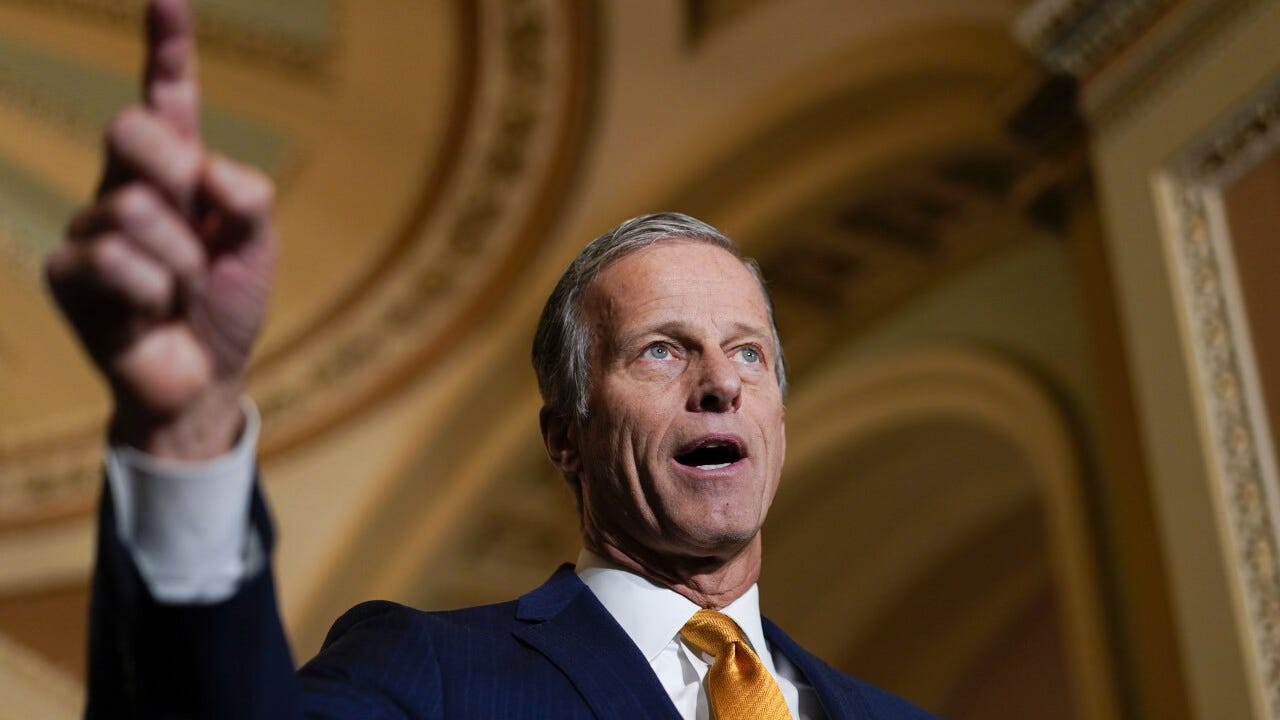Stablecoin Showdown: Senate Vote Fails, Republicans Regroup
Lawmakers plan to take the weekend before restarting talks on GENIUS Act
Welcome to the Friday edition of the Crypto In America newsletter!
Senate Republicans plan to take the weekend to cool off before restarting negotiations on the GENIUS Act next week, following a failed vote Thursday that blocked the advancement of legislation aimed at creating a federal regulatory framework for payment stablecoins.
The contentious cloture vote fell 48–49, short of the 60 votes needed to move the bill forward. Several Democrats who had been involved in late-night negotiations and text revisions — which continued into the early hours of Thursday morning — ultimately voted no along party lines, including Sen. Kirsten Gillibrand (D-NY) and Sen. Angela Alsobrooks (D-MD), both co-sponsors of the bill.
Key Republicans, including Sen. Josh Hawley (R-MO), also voted no, citing the need for stronger safeguards against Big Tech companies launching their own stablecoins — a sticking point that could shape future negotiations.
“This is a bipartisan issue and a bipartisan bill. It makes you wonder if this is about the bill at all or if it’s simply Democrats obstructing because they want to deny Republicans or President Trump a bipartisan win,” said Senate Majority Leader John Thune (R-SD) in a post-vote floor speech.
Thune changed his original “yes” vote to “no,” a procedural move that will allow Republicans to bring the bill back to the floor at a later date. A revote is being eyed before Memorial Day, though no firm date has been set.
The outcome also drew criticism from administration officials.
Treasury Secretary Scott Bessent called it a “missed opportunity,” warning that U.S. leadership in financial innovation is at risk. Bo Hines, Executive Director of the President’s Working Group on Digital Assets, said Democrats chose partisanship over progress and proved once again they’re not serious about innovation or putting the interests of the American people first.
Meanwhile, industry advocates are growing increasingly anxious that the stalled vote could sap momentum for a broader market structure bill — widely viewed as the most consequential piece of crypto legislation this Congress.
With President Trump’s deadline now less than three months away, some in the industry are questioning whether Republican leadership will opt to combine the stablecoin and market structure bills into a single package.
SEC Announces Settlement with Ripple
After a four-and-a-half-year legal battle, the SEC has reached a settlement with Ripple Labs, its CEO Brad Garlinghouse, and co-founder Chris Larsen.
Under the agreement, the $125 million civil penalty enacted last August by a Manhattan district judge would be partially released: $50 million paid to the SEC, with the remainder returned to Ripple, pending the court’s approval to dissolve an injunction put in place against the company. If approved, both sides would dismiss their pending appeals in the Second Circuit.
Lone Democrat SEC Commissioner Caroline Crenshaw opposed the move, calling it a disservice to investors. In her public dissent, Crenshaw, whose term is up this year, argued the settlement subverts the court’s earlier ruling by effectively erasing the penalty and injunction, which could leave the door open for Ripple to repeat violations without consequence.
She also warned the deal undermines the SEC’s credibility and enforcement integrity, accusing the agency of abandoning established legal standards for a future, undefined regulatory framework under the new Crypto Task Force, led by Republican Commissioner Hester Peirce.
Weekly Recap
ICYMI. Here are some of the biggest news stories this week from the intersection of Washington and Web3:
Coinbase has reached an agreement to acquire Deribit, a leading crypto derivatives exchange based in Dubai, for $2.9 billion—the largest acquisition in the crypto sector so far.
Rep. Ritchie Torres (D-NY) has introduced new legislation aimed at banning federal officials and their immediate family members from profiting off meme coins and stablecoins. The move comes amid growing criticism from Democrats of President Trump and his family’s involvement in various crypto ventures.
Alex Mashinsky, the former chief executive of defunct crypto lender Celsius, was sentenced to 12 years in prison this week for his role in the firm’s 2022 collapse.
Arizona Governor Katie Hobbs signed House Bill 2749 into law on Wednesday, paving the way for digital assets to be incorporated into the state’s unclaimed property system. The new law establishes a crypto reserve fund, allowing Arizona to manage and hold unclaimed crypto without relying on taxpayer dollars or state funds. Last week, Hobbs vetoed a bill that would allow the state treasurer to invest public pension funds in Bitcoin.
New Hampshire became the first U.S. state to pass a strategic Bitcoin reserve bill into law, authorizing the state treasurer to purchase the world’s largest digital asset either directly or through an ETP.
The House Financial Services and Agriculture Committees released a joint discussion draft of a market structure bill, building on the former FIT21 legislation from last Congress, that would create comprehensive rules of the road for digital assets. Notably, the bill in its current form would make the CFTC the dominant crypto regulator, instead of the SEC.
The Senate Banking Committee voted 13-11 to advance the nomination of Fed Governor Michelle Bowman to be the next vice chair for supervision. Her nomination will now go on to the full Senate. As vice chair, Bowman will oversee banks’ engagement with digital assets.
The SEC announced details for its fourth industry roundtable on tokenization. The May 12 event will feature two separate panels with participants from BlackRock, Franklin Templeton, Fidelity, Apollo Global, Securitize, Robinhood and others.
Remember, new editions of the Crypto In America newsletter drop every Monday, Wednesday and Friday at 7AM EST.
If you like what you’re reading, don’t forget to subscribe!






If we don’t get ahead of the curve, we’ll get left behind—fast.
China isn’t just watching the blockchain space… they’re strategically investing in decentralization, infrastructure, and influence.
The U.S. can't afford to stall while others build the future.
-Obsidian Enoch
https://bsky.app/profile/obsidian-enoch.bsky.social
#DoYouSeeTheSignal
#DigitalDollar #BlockchainLeadership #StrategicInnovation #CryptoPolicy #Web3Infrastructure
Terrible idea
https://youtu.be/r_AtgPWRpd0?si=_TVM69DLncygi-EX